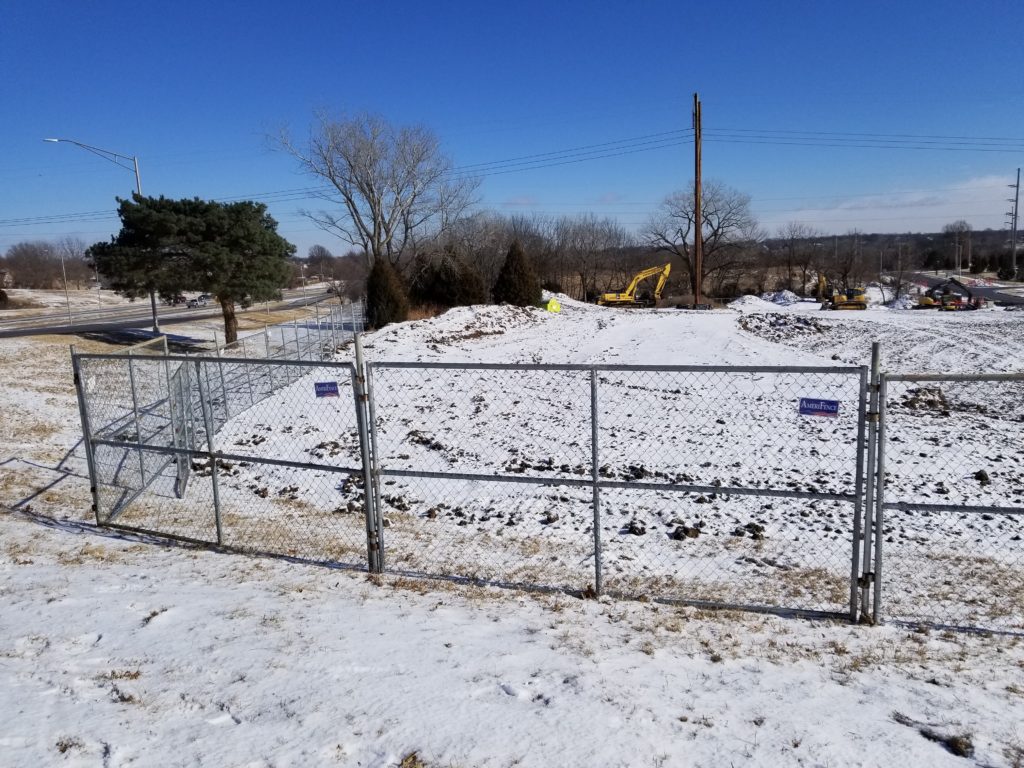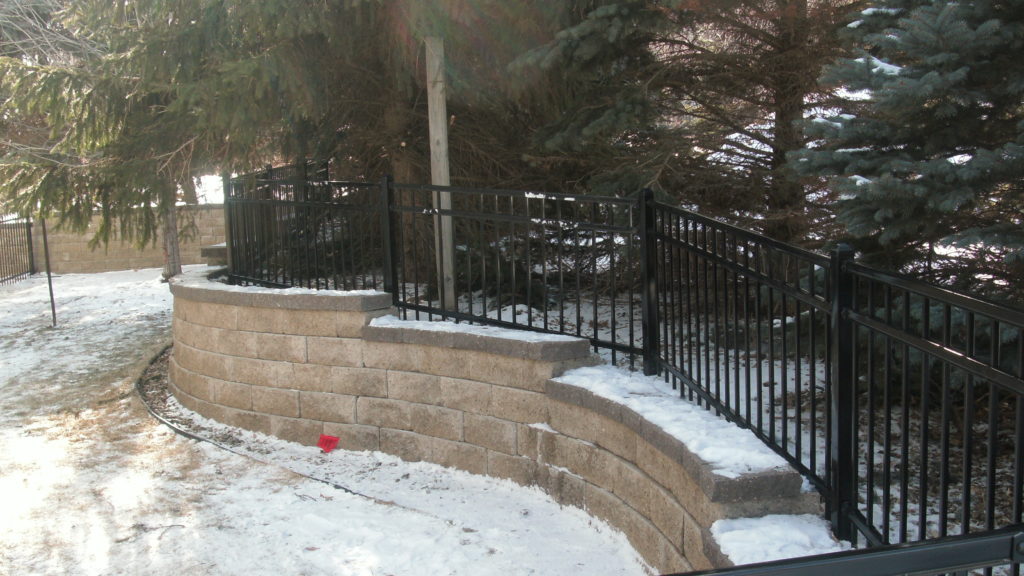Fence Repair in Kansas City: Winter Storm Damage

If you’ve lived in Kansas City or any part of the American Midwest for more than a couple of years, you know that winters here can be sporadic and unpredictable. Some years they’re calm and dry, while other years we become hammered with days of blizzard conditions. A bad winter brings freezing temperatures, heavy snow, damaging ice, and lashing winds that have the potential to cause fence damage. Unless you have a temporary fence system, you cannot simply disassemble and pack away your fencing until spring returns; and for this reason, post-winter fence repair in Kansas City is sometimes necessary.
Are you thinking of building a fence ahead of winter this year? Consider what type of fence you want and how the materials it’s made of will fare against potentially harsh winter conditions.
- Wood fence panels and winter conditions
- Vinyl fence panels and winter conditions
- Chain link fence panels and winter conditions
- Where can I get materials for fence repair in Kansas City?
Wood Fence Panels and Winter Conditions
There are several types of wood fences on the market, classified by design, the degree of privacy provided, and the specific wood materials they derive from. Generally speaking, fences made from heartwood (the sturdy core of the tree) are the most resilient and capable of withstanding impacts and high winds. By contrast, trees put together using sapwood (the moist outer layers of the tree) are flimsier by nature. Here at AmeriFence Corporation of Kansas City, we strongly discourage purchasing premade fence panels from the big box stores. These panels tend to be fragile and easily broken and, while less expensive, don’t fare as well in adverse weather conditions.
When it comes to wood fences in winter, expansion and contraction are particularly common occurrences. If your fence is not stained and sealed, your fence will absorb moisture throughout the year (rain, garden hose water, morning dew) which remains inside the fence and then freezes when the temperature goes down. This can potentially result in your fence parts warping and splitting.
Even if you’ve stained your fence, keep an eye on it during winter. Brush the snow off it as it accumulates, keep it from building up along the posts, and watch closely when it melts. If the melting snow and ice form little beads on your fence panels, this means the staining is working. If not, your fence needs another layer of staining come spring.
For a free estimate:

Vinyl Fence Panels and Winter Conditions
Longevity and resilience are among vinyl’s top advantages. When temperatures go down, this material becomes more flexible but should not break unless subjected to an unusual amount of force. And unlike wood fencing, you don’t have to worry about stain sealing, as PVC is rust-resistant. Regardless, it is a wise precaution to keep snowbanks from accumulating around your fence posts. In clearing away snowbanks, use a shovel or snow blower (with the chute aimed away from the fence). Use a broom to gently brush away snow buildup on the panels.
For a free estimate:
Chain Link Fence Panels and Winter Conditions
As the #1 fence company in Kansas City, AmeriFence Corporation carefully engineers our chain link materials for extra rust resistance. Generally speaking, chain link is the top choice for winter fencing, as metal does not contract or expand or lose its sturdiness in the cold like other materials. Of course, it is not guaranteed to withstand all blizzard conditions. So if your fence should become damaged this winter, whom can you turn to for materials?
Where can I get materials for fence repair in Kansas City?
Look no further than AmeriFence Corporation! As the top fence contractor in the Kansas City market, we work with reputable vendors around the globe to acquire the city’s largest inventory of fence materials. Vinyl, chain link, ornamental steel, wood, we have enough parts in each category for you to make repairs to a fence. If you need to purchase fence materials—any time of the year—do not hesitate to contact us!